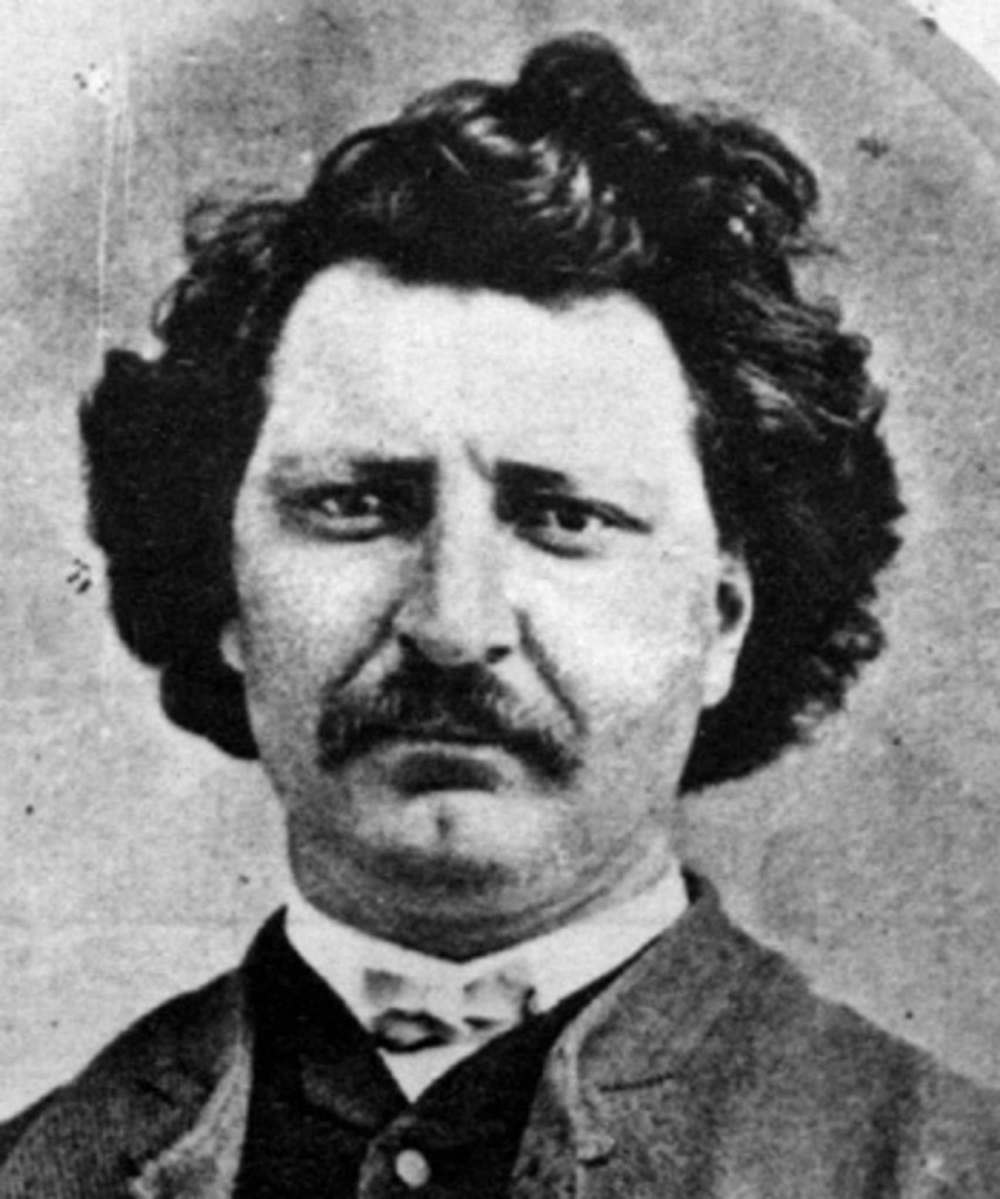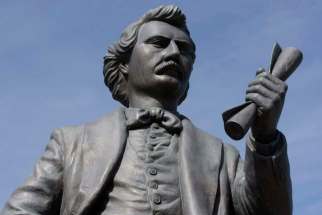Riel was never premier; it would be wrong to say he was
Read this article for free:
or
Already have an account? Log in here »
To continue reading, please subscribe:
Monthly Digital Subscription
$0 for the first 4 weeks*
- Enjoy unlimited reading on winnipegfreepress.com
- Read the E-Edition, our digital replica newspaper
- Access News Break, our award-winning app
- Play interactive puzzles
*No charge for 4 weeks then price increases to the regular rate of $19.00 plus GST every four weeks. Offer available to new and qualified returning subscribers only. Cancel any time.
Monthly Digital Subscription
$4.75/week*
- Enjoy unlimited reading on winnipegfreepress.com
- Read the E-Edition, our digital replica newspaper
- Access News Break, our award-winning app
- Play interactive puzzles
*Billed as $19 plus GST every four weeks. Cancel any time.
To continue reading, please subscribe:
Add Free Press access to your Brandon Sun subscription for only an additional
$1 for the first 4 weeks*
*Your next subscription payment will increase by $1.00 and you will be charged $16.99 plus GST for four weeks. After four weeks, your payment will increase to $23.99 plus GST every four weeks.
Read unlimited articles for free today:
or
Already have an account? Log in here »
Hey there, time traveller!
This article was published 19/02/2020 (2120 days ago), so information in it may no longer be current.
Let’s get one thing straight: Louis Riel was never the premier of Manitoba, much less its first one.

NDP Leader Wab Kinew introduced a private member’s bill in December that would, if adopted, give the Métis leader the “honorary title” of “first premier of Manitoba.” Kinew, along with federal NDP leader Jagmeet Singh, renewed his call for the designation Monday during Louis Riel Day celebrations.
It’s a nice gesture (although most private members’ bill are not approved by the legislative assembly). It pays respect to a man who, along with his supporters, rose up against the federal government in 1869-70 and demanded rights for the people of Red River prior to Canadian annexation. Riel was the indisputable leader of the French Métis. He also managed — through the use of coercion, from time to time — to convince anglophone Métis and others to join his cause.
Riel’s contribution to Manitoba is indisputable. Through his leadership, vision and tenacity, the people of Red River were able to preserve much of their land holdings, their language and culture and their democratic rights when they entered Confederation. It was under Riel that Manitoba saw its first elected government prior to joining Canada.
But Riel was never the premier. In Canada, premiers are first ministers who sit as members of a legislative assembly. They head the executive arm of a provincial government.

That’s not the position Riel had in 1869-70. Riel’s first crack at a quasi-government was the formation of a “national committee” in 1869, made up mostly of francophone Métis. That evolved into the first provisional government, but still lacked representation from anglophone members of the community. Riel was the secretary of the first version of that government, and later president when former president John Bruce stepped down.
Following two large public meetings at Upper Fort Garry in January 1870, a Convention of Forty was formed, made up of 20 French and 20 English representatives. The convention hammered out an updated “bill of rights” to present to Ottawa as a condition of joining Canada. The convention also agreed to create a new provisional government that would include 12 French and 12 English representatives. That was the legislative council that governed for the duration of the Red River Resistance.
But it was not a based on the British parliamentary system, as provincial and federal governments are in Canada. There was no premier in Red River prior to the creation of Manitoba.
There was no premier in Red River prior to the creation of Manitoba.
What existed instead was a legislative council based more on a U.S.-style presidential system, where the executive was separate from the legislative council. The legislative council was elected by the people. The executive was elected by the Convention of Forty, which chose Riel as president.
As president, Riel had a veto over decisions made by the legislative council, which could be overturned by a two-thirds vote of council. In no way did Riel’s position as president resemble that of a provincial premier. No one referred to him as premier at the time. That’s a historical fact.
It’s only now that some people want to rewrite history by passing legislation that would make him the first premier of Manitoba.
There is a section in Kinew’s bill, which would instruct the education system to include Riel’s contributions in the school curriculum (if they don’t already), and that’s worth pursuing. If Kinew wants to further honour Riel, he should add an amendment to the bill that would call on the legislative assembly to commemorate the Red River Resistance through some type of display inside the Legislative Building. Surprisingly, there is no such commemoration in the halls of the legislature.
Former premier Greg Selinger added a portrait of Riel to the premiers’ gallery outside the premier’s office on the second floor. It doesn’t identify him as a premier. And there is a framed 1870 legislative council displayed on the wall on the first floor, along with all other legislative assemblies dating back 150 years. However, there’s no explanatory note and nothing about the events that led to the creation of Manitoba.
Honouring Riel and celebrating his accomplishments is laudable. But we shouldn’t add inaccuracies to the historical record by giving Riel a title he never had.
tom.brodbeck@freepress.mb.ca

Tom has been covering Manitoba politics since the early 1990s and joined the Winnipeg Free Press news team in 2019.
Our newsroom depends on a growing audience of readers to power our journalism. If you are not a paid reader, please consider becoming a subscriber.
Our newsroom depends on its audience of readers to power our journalism. Thank you for your support.


![Thomas Scott (c. 1842 – 1870) was an Irish-born Canadian and fervent Orangeman. Scott was born in the Clandeboye area of County Down, in what is now Northern Ireland.[1] He was recruited by Canada to fight in the Red River Rebellion and was captured and imprisoned in Upper Fort Garry by Louis Riel and his men while trying to attack it along with 34 other volunteers. Scott made an attempt to escape but was recaptured by Riel's men and was summarily executed for committing insubordination. Scott's execution led to an outrage in Ontario, and was largely responsible for prompting the Wolseley Expedition, which forced Louis Riel, now branded a murderer, to flee the settlement. http://en.wikipedia.org/wiki/Thomas_Scott_%28Orangeman%29](https://dev.winnipegfreepress.com/wp-content/uploads/sites/2/2022/05/Thomas+Scott.jpg?w=100)









